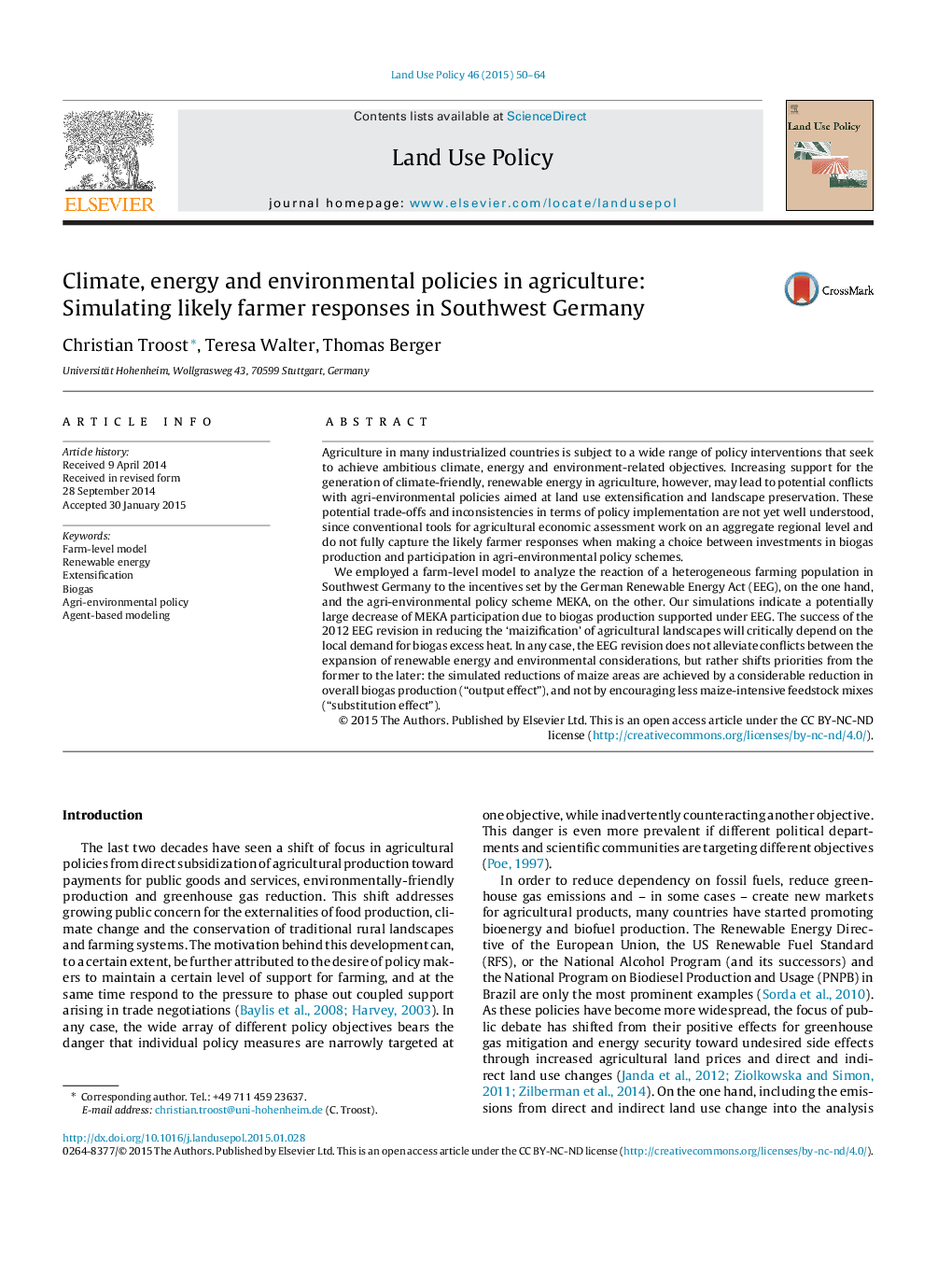| Article ID | Journal | Published Year | Pages | File Type |
|---|---|---|---|---|
| 6548194 | Land Use Policy | 2015 | 15 Pages |
Abstract
We employed a farm-level model to analyze the reaction of a heterogeneous farming population in Southwest Germany to the incentives set by the German Renewable Energy Act (EEG), on the one hand, and the agri-environmental policy scheme MEKA, on the other. Our simulations indicate a potentially large decrease of MEKA participation due to biogas production supported under EEG. The success of the 2012 EEG revision in reducing the 'maizification' of agricultural landscapes will critically depend on the local demand for biogas excess heat. In any case, the EEG revision does not alleviate conflicts between the expansion of renewable energy and environmental considerations, but rather shifts priorities from the former to the later: the simulated reductions of maize areas are achieved by a considerable reduction in overall biogas production (“output effect”), and not by encouraging less maize-intensive feedstock mixes (“substitution effect”).
Related Topics
Life Sciences
Agricultural and Biological Sciences
Forestry
Authors
Christian Troost, Teresa Walter, Thomas Berger,
